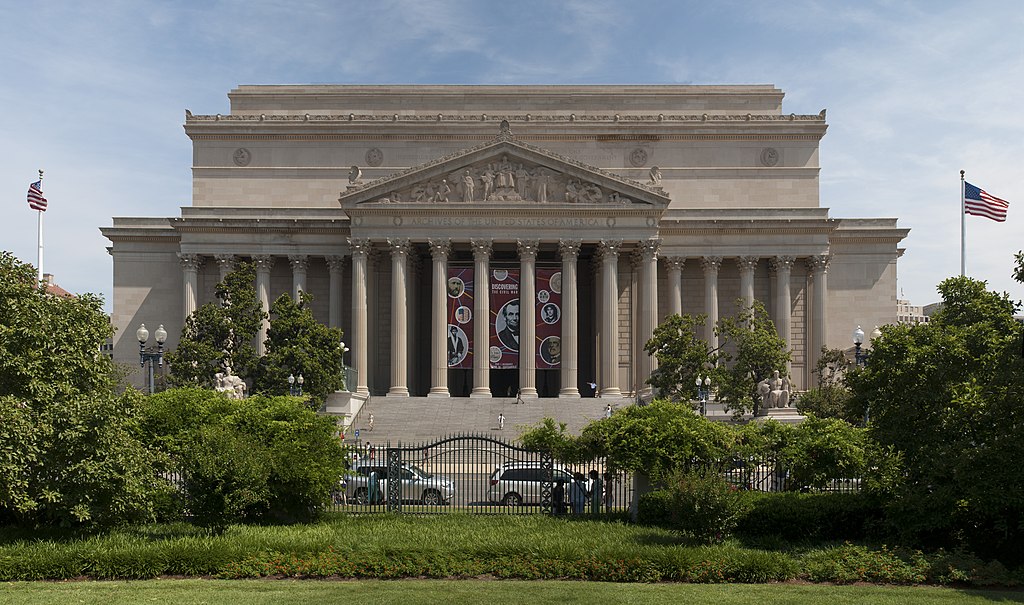The Presidential Records Act and the Mar-a-Lago Documents
Who can possess the documents, and when?

Published by The Lawfare Institute
in Cooperation With

Below are some reactions to two arguments made under the Presidential Records Act (PRA) in connection with presidential records recovered at Mar-a-Lago. The first has to do with an unconvincing argument by David Rivkin and Lee Casey that, because of technicalities in the PRA, “the FBI had no legally valid cause for the raid” to recover documents from Mar-a-Lago last week. The second has to do with an incomplete and perhaps-unconvincing argument that the national archivist made under the PRA to justify giving the FBI access to presidential records recovered from Mar-a-Lago in January of this year.
Rivkin and Casey
Rivkin and Casey argue that Trump’s “possession” of the documents is lawful, and thus the three criminal statutes in the warrant do not apply, because Trump has a “right of access” to the documents under the PRA.
I think this argument is wrong. The PRA says that “upon the conclusion of a President’s term of office, … the Archivist … shall assume responsibility for the custody, control, and preservation of, and access to, the Presidential records of that President.” More importantly, it says that the United States “shall reserve and retain complete ownership, possession, and control of Presidential records.” The PRA also says that the archivist “shall deposit all such Presidential records in a Presidential archival depository or another archival facility operated by the United States” (emphasis added).
The PRA thus makes clear that only the United States (and not former President Trump) owns and is authorized to possess and control the presidential documents. And it specifies that the archivist assumes “responsibility for the custody [and] control” of presidential records at the end of a presidential term, and must deposit them in an archival facility operated by the United States. The PRA gives a former president certain rights to access and limit access to the documents in the possession of the United States, but it rules out the possibility of a former president possessing presidential records after his presidential term.
Rivkin and Casey claim that the PRA “doesn’t address the process by which a former president’s records are physically to be turned over to the archivist, or set any deadline, leaving this matter to be negotiated between the archivist and the former president.” True. But the absence in the PRA of a “process” or “deadline” for a former president to transfer records to the archivist is irrelevant to whether former President Trump has or ever had lawful possession. Again, the records are by statute owned and controlled by the United States, not the former president. Even if the documents are not in actual possession of the archivist at the end of a presidential term, the PRA makes clear that the former president has no claim, none, to keep the documents for himself. They are not his documents to take, or keep, or negotiate the transfer of.
Whether the three criminal statutes cited in the warrant can be a basis for a prosecution for a violation of the PRA, especially against a former president, is a trickier question. But I don’t think this complex legal question matters to the validity of the warrant. First, the applicability of these criminal statutes—18 U.S.C. § 1519, 18 U.S.C. § 2071, and 18 U.S.C. § 793—does not necessarily turn on whether the PRA was violated; they can apply in several ways whether or not Trump had a valid claim to possess the documents.
Second, Rivkin and Casey assume throughout that the only potential violator of these statutes is the former president. But the warrant does not say this. The warrant describes the location of the documents connected to a crime, not the identity of the violator. And—this is important—many people connected with Trump might have handled these documents in ways that violated the statutes.
Archivist Dispute With Trump
Speaking of Trump’s rights related to accessing his presidential records under the PRA: Trump tried to prevent the National Archives from giving the Biden administration access to documents that he voluntarily returned to the National Archives in January. (These are different documents than the ones subject to the recent Mar-a-Lago search warrant.) In a letter to Trump’s representative, Evan Corcoran, the acting archivist, Debra Steidel Wall, claimed that she was authorized to give the Biden administration—more specifically, the FBI—access to these documents under 44 U.S.C. § 2205(2)(B).
That provision states that “[n]otwithstanding any restrictions on access” under the PRA, “Presidential records shall be made available … to an incumbent President if such records contain information that is needed for the conduct of current business of the incumbent President’s office and that is not otherwise available” (emphasis added). PRA regulations provide that in this situation, the president (here, President Biden) “must request the records [he seeks] … from the Archivist in writing and, where practicable, identify the records with reasonable specificity.” Wall’s letter implies that Biden, through the White House counsel, made this request.
The PRA never contemplated the situation we are in. But it is not obvious that it gives the current administration access rights to these documents. The documents plausibly “contain information that is needed for the conduct of current business” of the Biden administration. But it is not obvious that the “information is not otherwise available.” Indeed, I would think that much if not all of the information contained in the documents is otherwise available. The acting archivist asserts that the conditions for FBI access “are satisfied” in this instance. But she notably did not address the point about the information being otherwise unavailable in explaining why the conditions are satisfied.
This reading of the PRA might generate an absurd result: A former president can violate the PRA by keeping presidential records that contain classified information and then, once he returns the documents, can invoke the PRA to prevent the current administration from assessing the damage to national security from the former president’s violation of the PRA. But the PRA clearly spells out the former president’s rights over access, and also clearly provides that, as an exception to PRA access restrictions, the current president gets access only if the information contained in the records “is not otherwise available.”
Perhaps the archivist can avoid this conclusion. Perhaps the relevant “information” is about what records, or versions of records, were removed, transported, or stored in a way that implicates criminal or national security issues, and there is no other way to obtain that information without access to the records themselves. (The archivist letter says that the current administration needs access to the documents to “conduct an assessment of the potential damage resulting from the apparent manner in which these materials were stored and transported.”) This argument might work, depending on the details. But it is not obvious that it works, because it is not obvious that the documents the FBI wants to access “contain” (as the PRA requires) this sort of information.
The fact that the acting archivist made clear why the information in the documents was needed for current government business but did not obviously address whether the information was “otherwise available” makes me think that there is at least a difficult question about whether the “not otherwise available” element of § 2205(2)(B) is satisfied.
If I am right about that, then the Trump team might have missed its best argument to prevent the FBI from accessing these documents. Trump’s lawyers have argued that the documents are subject to executive privilege. That is a weak argument for reasons stated by the acting archivist. A stronger argument may be that the PRA itself prevents FBI access because the provision allowing the current administration access to the former president’s records is not satisfied.
Let’s assume (just an assumption) that the Biden administration violated the PRA here in response to Trump’s violation of the PRA in taking the documents to Mar-a-Lago in the first place. What is the remedy for the ostensible Biden administration violation? Should Trump seek (or should he have sought) to enjoin the FBI from accessing the documents?
Even if Trump were to secure such an injunction based on the argument above, the FBI might have another way to get access to the documents, under a different PRA provision granting access to presidential records. Section 2205(2)(A) provides that the records “shall be made available … pursuant to subpoena or other judicial process issued by a court of competent jurisdiction for the purposes of any civil or criminal investigation or proceeding.” This provision is presumably why the documents secured in the Mar-a-Lago raid did not violate the PRA. Maybe the FBI could have taken this route to access the Trump documents recovered in January from Mar-a-Lago.





